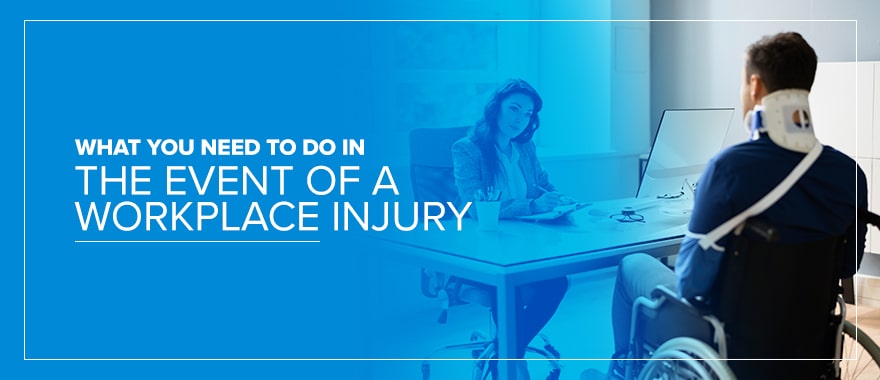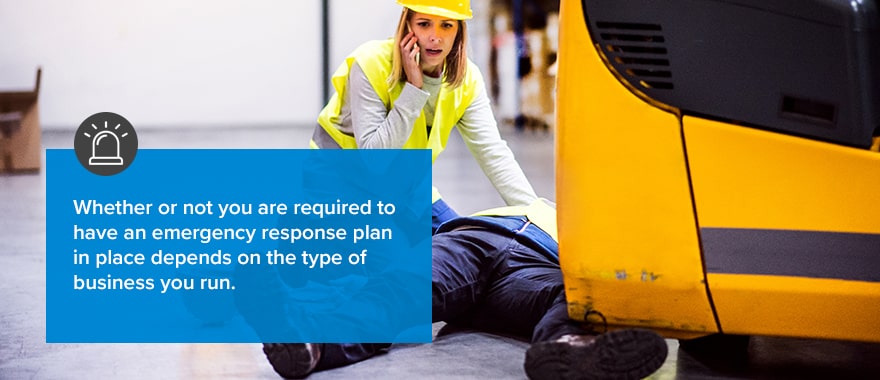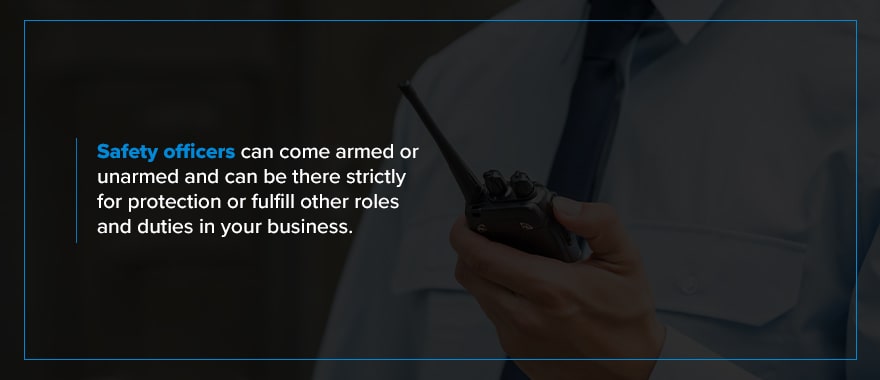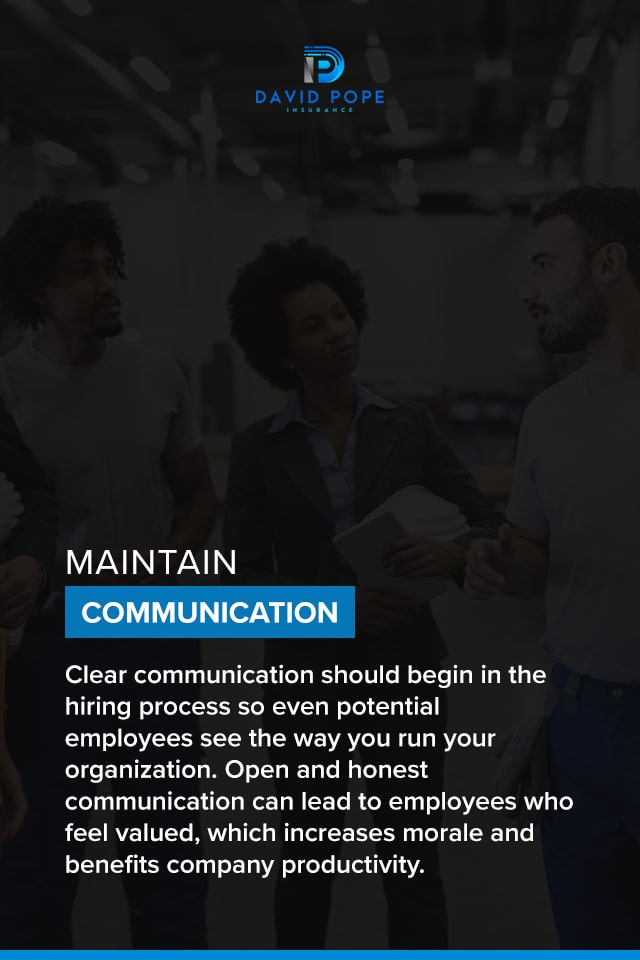
Though you hope to never encounter an injury at work, there are a lot of procedures that, if put in place ahead of time, can make the difference between being panicked and being prepared. As an employer, you have different responsibilities if someone is injured in the workplace, and you should take action quickly. Having a clear-cut plan in place that is well communicated to everyone in your organization can make that happen.
Being prepared and staying calm in the event of an injury or emergency can benefit your injured employee and you as the employer. A faster reaction time can minimize an injury’s severity, which can keep you protected in the event of a lawsuit or help ensure you’re covered under workers’ compensation.

An emergency response plan lays out the actions different people throughout your organization will be responsible for so they know what to do when an employee is injured at work.
Whether or not you are required to have an emergency response plan in place depends on the type of business you run. If your business deals with highly hazardous chemicals, has fire detecting and extinguishing systems or handles grain, you are among businesses that need an emergency plan. Regardless, it is a good idea for every company to have a response plan to protect you, your employees and your business as best as you can in case of an emergency.
Creating your emergency response plan should involve your employees and leadership teams throughout your organization to ensure it is as comprehensive as possible. You should begin by doing a hazard assessment, analyzing potential emergencies in every area of your organization.
There are certain things every emergency action plan should include, with the addition of actions specific to your organization:
The type of first-aid supplies on a work site should be based on the workplace you are running and the types of injuries that could occur. But there are certain resources that should be present at every organization.
One of those must-have resources is an automated external defibrillator (AED). AEDs are widely available and easy for anyone to use, not just medical professionals. This point is critical as cardiac episodes require immediate action. In these situations, it takes too much crucial time to wait for medical personnel. The AED needs to be readily available, and people in your workplace have to be trained to use it.
You should also consider where you are storing your first aid supplies and make sure it is somewhere easily accessible in the event of an emergency.
If you are unsure what medical supplies to have on hand at your workplace, consider talking to medical or rescue professionals who will be able to provide valuable tips.
If an incident leads to an employee losing consciousness, it is important that you contact the people they designated as emergency contacts who can handle their belongings and paperwork at a hospital. This means you need to prepare for these events before they happen, which can be hard given they are things you hope never occur. However, you should just make it a part of your hiring process that you collect a list of employees’ emergency contacts so you are prepared if there is some sort of emergency.

A safety officer provides an added level of protection to your workplace and can take on a variety of different roles. Safety officers can come armed or unarmed and can be there strictly for protection or fulfill other roles and duties in your business. They can also conduct inspections and audits to help your workplace stay up to code.
Safety officers can also be a valuable resource when you are conducting a hazard assessment for your workplace, as they are well-versed in areas of potential danger.
Providing medical assistance should largely be left to medical professionals in the event of an accident. However, the Occupational Safety and Health Administration (OSHA) says a serious injury should be treated within three to four minutes of the initial incident.
Provide a group of employees with first-aid training so they can begin the process of caring for injured workers while waiting for emergency personnel to arrive. It should also be common knowledge within your workplace where the nearest health care facility and emergency department are.
Those who are not injured or directly involved in assisting the injured should follow the evacuation procedure laid out in your emergency response plan. Making sure employees are constantly refreshing their knowledge of the plan will help them know what to do quickly. Have physical postings of evacuation routes in your building so employees have a refresher if they forget.
Do not wait to gather information about the incident. Write down all the relevant details you can think of surrounding the accident and ask any other witnesses to do the same.
Be as thorough as possible in gathering evidence. Include pictures, equipment and any other physical pieces of evidence you can find. Even if the incident is minor, file any injuries in case more physical problems show up at a later date.
The U.S. Department of Labor created the Office of Workers’ Compensation Programs (OWCP) to administer four disability compensation programs. These programs provide various groups who suffer an injury at work wage benefits, medical treatment and rehabilitation, among other benefits.
You should file a compensation claim quickly following a workplace injury. While working through the process, you should keep open, honest communication with the insurance company and employees involved. Workers’ compensation allows your employees to maintain a source of income while being unable to work. In the event of an employee’s death, workers’ compensation can provide their family members with benefits.
You should do your research on workers’ compensation to be sure your industry does not fall into an exception. Also, be aware that workers’ compensation does not cover health care situations that are not directly connected to work-related activities.
In the state of Missouri, any company with five or more employees is required by law to provide workers’ compensation coverage for every employee. Even if your business may seem to be at low risk for an employee injury, there are hazards you may not see. Workplace injuries can occur from things as simple as slipping on a wet surface, lifting heavy objects, carpal tunnel syndrome or tripping over a cord. There are also more obvious hazards in some industries, like exposure to toxic materials or trauma injuries from heavy equipment.
With many workplace injuries, the injured will need time off to recover. It is important that you have policies in place for how this will work out before an event happens. The time they will need off will vary based on the severity of the injury. If you have laid out general yet flexible guidelines, your employee will benefit. The other workers at your organization will also have peace of mind as they see you work generously with your employees.
Given the nature of your work, you may need to implement return-to-work assignments or have an employee demonstrate performing their daily tasks to prove their readiness. Getting a doctor’s note will also help you determine if your employee is ready to return to work. You will also need to trust that they are being honest in saying tasks do not cause them pain or worsen their injury.

If you do everything right regarding emergency preparedness within your organization but fail to communicate policies and workplace injury procedures clearly to your employees, it will not be as effective as it could be.
Clear communication should begin in the hiring process so even potential employees see the way you run your organization. Open and honest communication can lead to employees who feel valued, which increases morale and benefits company productivity. Hired employees should have no questions regarding how things will operate in the workplace in the case of an emergency or following an employee injury.
Communication should also be clear regarding what is considered a work-related injury to eliminate confusion and frustration if an accident does occur. Common workplace injuries include slips and falls coming in or out of an office on an icy day or on wet floors in the office, injuries from lifting and car accidents on work-related drives. There are other work-related injuries that could occur that are specific to your industry.
With employees who are returning to work from injury, open communication is still important. If you have exhibited consistent communication, you will have built trust with this employee. They can then be more honest with you about their condition and how they are feeling about returning to work.
If an employee’s condition following an injury is critical, put their health first and get them to the nearest emergency room as fast as possible, or let the EMTs do the same if the ambulance needed to be called.
However, if an employee’s injury is minor and does not need immediate attention, in a lot of cases, the employer can decide where the employee goes for treatment. This is to streamline the workers’ compensation process and provide your employee with good care in the meantime.
If the unexpected does happen and your employee chooses to pursue a lawsuit, there are steps you can take to minimize the damage. The process after your employee files a lawsuit is different state by state. In Missouri, for example, having workers’ compensation insurance keeps employers immune from civil lawsuits. If you decide to self-insure or do not have workers’ compensation insurance, your employees can file civil suits against you.
It is important that your workers’ compensation procedures are comprehensive to prevent your employees from needing to file a lawsuit against your business.
You should not shut down communication with your employee if they file a lawsuit. Open communication has been a part of their work experience up until this point and that could work in your favor after they have filed. Closing communication will make the process take longer, which often makes it more expensive.
There will often be liability insurance included in your workers’ comp policy that will help you cover the cost of your legal fees. And, ideally, the lawsuit can be settled without litigation. It will also be an opportunity for you to make changes to your organization that will create a safer working environment and avoid future lawsuits.
David Pope Insurance has been making an impact in the insurance industry in Missouri since 2005. David Pope himself has been doing the same since 1999. Having over two decades of experience allows him to provide superior coverage to places as far as Tennessee, Illinois, Nebraska, Colorado, Arkansas, Iowa and Kansas.
We bring a local and personalized touch to your insurance needs that will give you peace of mind and make you as comfortable as possible with your purchase. Our offices are right next to yours in Washington, Union and St. Clair, giving us a clear picture of the needs in the communities we serve.
If you are an employer in Missouri or one of the other states we serve, come to David Pope Insurance for your workers’ compensation needs. Our plans are comprehensive and budget-friendly. We work through Progressive, a household name that has built trust and respect in Missouri and around the United States. Our agents are well-equipped with the knowledge and experience they need to help you build a plan that is unique to your business, getting you quality claims service every step of the way.
Get a fast and free workers’ compensation insurance quote today!